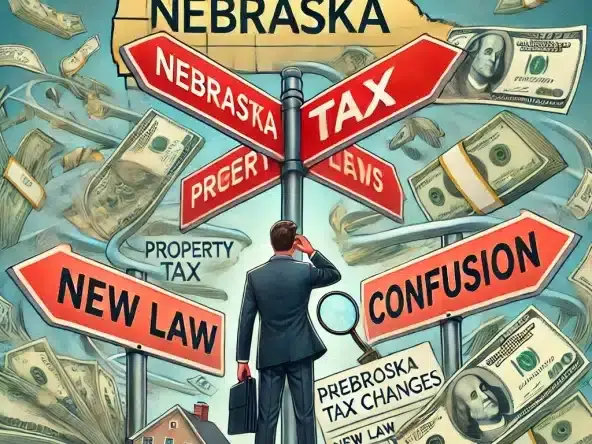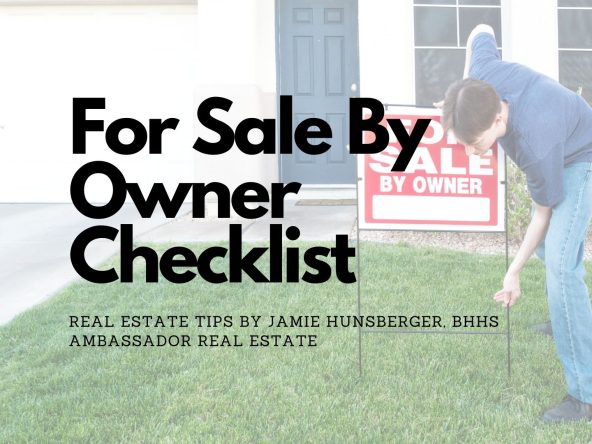Bryan Hunsberger
Before You Buy: 10 Things To Be Sure You Do Before You Buy Your First Home
Buying a house for the first time can be a little intimidating. There are a lot of moving parts in the search, offer, paperwork, financing, closing and everything else…and that’s just the beginning of home ownership.
Certainly almost everyone will eventually navigate the turbulent, exciting waters of first home purchase; and the notes that follow are meant to ensure the “boat” that you take across this ocean of details is seaworthy.
1 – Make sure you’re ready.
Like standing at the edge of a high dive, looking down and visualizing the fall and collision with the water, you should evaluate your readiness for this commitment.
You will need to be sure you can financially afford the purchase. Evaluate if you’re able to perform home repair or afford to hire necessary fix or maintenance work. Are you ready to settle down in one place long enough for ancillary costs of a real estate transaction to make sense?
2 – Decide what you can afford.
Most articles you read about home ownership and financing won’t word this section in this way. That’s because we live in a very high debt tolerant society. If you have a reasonable credit rating, most lenders will give you more money than you should actually accept.
It’s normal for a new home buyer to trust that a lender knows what you can afford. However, this is no longer the case. It’s important for you to evaluate your personal monthly spending levels and determine if the amount of your house payment will fit within that budget.
As you evaluate that budget, some cost categories to consider:
- Mortgage Interest and Principal
- PMI
- Real Estate Taxes
- Homeowner’s Insurance
- Homeowner’s association dues
- Utilities of a larger space
- Decorations, upgrades
- Home maintenance costs
- Lawn & landscaping costs
Consider all those costs and be sure you’re within your means and you’ll avoid the stress of being “house poor.”
3 – Learn the basics.
Besides of the basics of the financial commitment you’ll be making as a new house owner, there are some other fundamentals that will be helpful to learn.
When the toilet breaks, a faucet starts to leak, a room needs painting, the trees need trimmed, a deck needs staining or a window gets stuck…you get the idea: what will you do?
Don’t panic…these issues are normal and usually easily resolved one of two ways. Just make the determination: if you’re not handy, can you afford a handyman to take care of these issue? If you’re sort of handy, buying a book like Home Depot 123 can be invaluable. YouTube will almost certainly have multiple videos on how to conduct any needed repair. Just get in the right frame of mind and do some preparation to being thinking about these kinds of things.
4 – Stash the cash.
In most cases, you’ll need cash on hand for things like your down payment, which will include more than just the equity you’re putting toward the house. You’ll have closing costs and new home items you’ll be wanting to buy. Typical down payments for a mortgage are in the 10% range and 20% is required to avoid private mortgage insurance (PMI). Depending on your status, lots of other options are available. Do your research.
5 – Determine your projected stay.
If you’re not able or likely to stay in a home for 2,3 or more years, it’s unlikely that the closing and moving costs you’ll be incurring will make financial sense. And those costs are more than just the purchase costs…consider the costs of selling that home as well. For home ownership to make sense, a good rule of them is planning on living there at least 5 years.
6 – Research Location
Length of stay figured out, do some research on location. It’s a big world out there, where do you want to get your Starbucks in the morning?
Research schools, home prices, commutes etc. A new feature in most searches is the walk score. check it out.
7 – Determine your “requirements”
Ok, here we’re going to do your Realtor a big favor, and if you a looking in the Omaha area, your Realtor really should be Jamie Hunsberger.
No house is perfect. It WILL have warts. There will always be things that are missing or seem a little wrong. When you shop with an inexperienced Realtor, this is what inevitably happens: they will listen to your needs and requirements and make a huge mistake. They’ll show you the best fitting house first. But it won’t be perfect. Then you’ll look at some more houses that are worse fits next and because nothing met your unrealistic expectations, you’ll decide to keep looking….but you won’t find anything as good as the top pick that the Realtor shouldn’t have shown you first.
A more experienced Realtor does the opposite. After listening to you and having shopped for houses for years, and knowing every house that’s on the market or has been on the market the last decade, they know what house you should buy. But they show you some “context” houses first. These are just houses that are close to what you want, but are the runners-up. They’ll show you the winning house 3rd or 4th. This is not to deceive you, but to prepare you and provide you proper context to enable you to make a decision.
With that in mind, you can help yourself and your Realtor, and your vehicles, some strain by writing down your list of non-negotiables. Then write down your strong preferences. Lastly, jot down your wish list. Then go over it again and make sure you really know what you want vs. what you need.
8 – Soft search
Go ahead and start searching now. You can start searching at any stage of this process in fact. Just be sure to realize that for every house on the market today, there is another house coming on the market next week. Markets do fluctuate and there are periods where the housing market is very tight and buying properties is difficult. For the most part, however, there are few once in a lifetime buys…when you’re ready to buy, houses will be available. So don’t panic or rush the process before you’re truly ready to buy. Houses will be there when you’re ready.
9 – Get paperwork and pre-approval
Before you can start touring houses, you’ll need to get pre-approved for a loan. This isn’t a commitment to borrow or buy, this is just a preliminary evaluation of your credit-worthiness to borrow at a certain level. You can’t start walking through people’s occupied homes without proving your capable and intending to actually buy a house.
Talk to Jamie or a Realtor in your market for a suggested lendor or do your own research. Feel free to contact Jamie even if you’re not shopping in the Omaha area. She can help you find a good Realtor in your market.
10 – Identify a Realtor
Now it’s time to work with a Realtor. The pitfalls and complications of a real estate transaction make this a strong recommendation. It’s possible to buy and sell property without a Realtor, however, the risk/reward alongside the minefield of the OTHER party in this transaction, who you don’t know and shouldn’t trust make this too risky in our view.
Talk to Jamie, regardless of your market. She’ll help you find a good fit.
11 – Assemble the Rest of the Team
Bonus point. This one’s free. Work with your Realtor to help determine your final lender, home inspector, title company and other folks who will walk you through the transaction.




